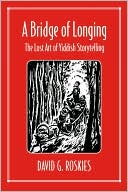Category Books
- Fiction Books & Literature
- Graphic Novels
- Horror
- Mystery & Crime
- Poetry
- Romance Books
- Science Fiction & Fantasy
- Thrillers
- Westerns
- Ages 0-2
- Ages 3-5
- Ages 6-8
- Ages 9-12
- Teens
- Children's Books
- African Americans
- Antiques & Collectibles
- Art, Architecture & Photography
- Bibles & Bible Studies
- Biography
- Business Books
- Christianity
- Computer Books & Technology Books
- Cookbooks, Food & Wine
- Crafts & Hobbies Books
- Education & Teaching
- Engineering
- Entertainment
- Foreign Languages
- Game Books
- Gay & Lesbian
- Health Books, Diet & Fitness Books
- History
- Home & Garden
- Humor Books
- Judaism & Judaica
- Law
- Medical Books
- New Age & Spirituality
- Nonfiction
- Parenting & Family
- Pets
- Philosophy
- Political Books & Current Events Books
- Psychology & Psychotherapy
- Reference
- Religion Books
- Science & Nature
- Self Improvement
- Sex & Relationships
- Social Sciences
- Sports & Adventure
- Study Guides & Test Prep
- Travel
- True Crime
- Weddings
- Women's Studies
Bridge Of Longing » (1st Edition)

Authors: David G. Roskies
ISBN-13: 9780674081406, ISBN-10: 0674081404
Format: Paperback
Publisher: Harvard University Press
Date Published: September 1996
Edition: 1st Edition
Author Biography: David G. Roskies
David G. Roskies is the Sol and Evelyn Henkind Chair in Yiddish Literature at the Jewish Theological Seminary of America.
Book Synopsis
A Bridge of Longing is a compelling history of how Yiddish storytelling became the politics of rescue for successive generations of displaced Jewish artists, embodying their fervent hopes and greatest fears in the languages of tradition. Its protagonists are modern writers who returned to storytelling in the hope of harnessing the folk tradition, and who created copies that are better than the original.
When the cultural revolution failed—as it did for Rabbi Nahman of Bratslaw in the summer of 1806 and for I. L. Peretz in the winter of 1899; for Kiev novelist Sholem Aleichem in 1890 and kibbutz novelist Yosl Birstein in 1960; for Polish-Jewish refugees Isaac Bashevis Singer and Jechiel Isaiah Trunk when they cast ashore in America—there seemed but one route out of the spiritual and creative impasse, and that was storytelling. Yiddish storytelling was a lost art, relegated to obscurity among religious texts and synagogue sermons, then willfully abandoned by Jewish rebels and immigrants seeking more cosmopolitan forms of expression. Thus its recovery is a tale of loss and redemption.
Behind the joyous weddings that end the fairy tales and romances of Rabbi Nahman, I. L. Peretz, Der Nister, and Abraham Sutzkever; beneath the folksy facade of holiday stories by I. M. Dik and Sholem Aleichem, the Bible Poems of Itzik Manger, the demon-monologues of I. B. Singer, there lies, according to David G. Roskies, an aesthetic and moral sensibility totally at odds with the coarse humor and conventional piety of the folk. Taken together, these writers and their deceptively simple folk narratives weave a pattern of rebellion, loss, and retrieval that Roskies calls "creativebetrayal"—a pattern he traces from the weddings of Yiddish fantasy to the reinvented traditions of contemporary Jews. His book itself is a delightful expression of the art of storytelling—it is a warm and vivid account.
Table of Contents
| 1 | The People of the Lost Book | 1 |
| 2 | The Master of Prayer: Nahman of Bratslav | 20 |
| 3 | The Master of Lore: Isaac Meir Dirk | 56 |
| 4 | The Conjuror: I. L. Peretz | 99 |
| 5 | Mythologist of the Mundane: Sholem Aleichem | 147 |
| 6 | The Storyteller as High Priest: Der Nister | 191 |
| 7 | The Last of the Purim Players: Itzik Manger | 230 |
| 8 | The Demon as Storyteller: Isaac Bashevis Singer | 266 |
| 9 | Estates of Memory: After the Holocaust | 307 |
| Notes | 347 | |
| Index | 409 |
Subjects
 Literary Criticism
Literary Criticism  Jewish Literature
Jewish LiteratureNonfiction
 Social Sciences
Social Sciences  Jewish Studies
Jewish StudiesScience & Nature
 Social Sciences
Social Sciences  Jewish Studies
Jewish StudiesSocial Sciences
 Jewish Studies
Jewish Studies  Jewish Literature
Jewish Literature
